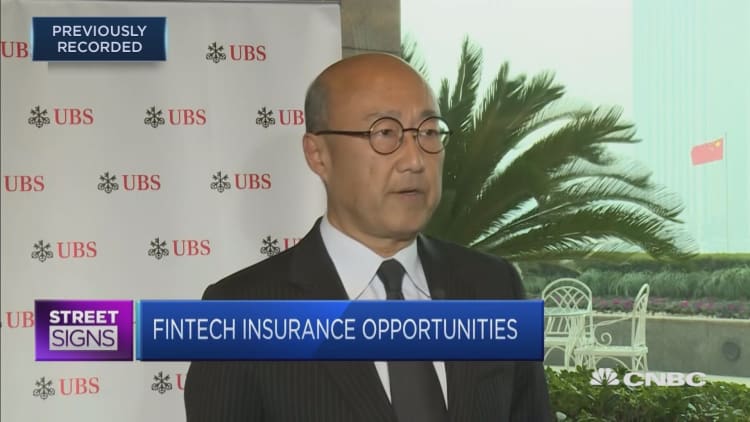
The two largest economies in the world are at the forefront of artificial intelligence development, but the jury is still out on which country is leading the race, according to a start-up with a presence in both the United States and China.
"I think it's still early days. China probably leads on the retail end and consumer front, whereas the U.S. probably leads on autonomous driving for now," Daniel Tu, president and chief product and platform officer at Gen.Life, said Monday at the UBS Greater China Conference in Shanghai.
Gen.Life is a start-up that uses technology such as A.I. to measure risks and improve the pricing and distribution of insurance products. The one-year-old firm is backed by major insurance firms such as AIA and American Family Insurance.
In terms of government support, however, China appears to have an edge, said Tu.
China's State Council in July 2017 set out a goal to expand A.I. into a $150 billion industry in the next few years and turn the country into an innovation center for A.I. by 2030, the South China Morning Post reported.
In the U.S., academics such as MIT President L. Rafael Reif have called for greater collective efforts by the government, companies and society to lead the way, noted Tu, who is a former executive at Chinese financial conglomerate Ping An.
"There's a sense of urgency within the leading academic institutions in the United States about a lack of central, coherent policy by the central government, whereas in China, if you look at the recent State Council White Paper on A.I., it's clear China has a clear vision on how they would like to see this go," Tu said. "But I think it's still early days."



